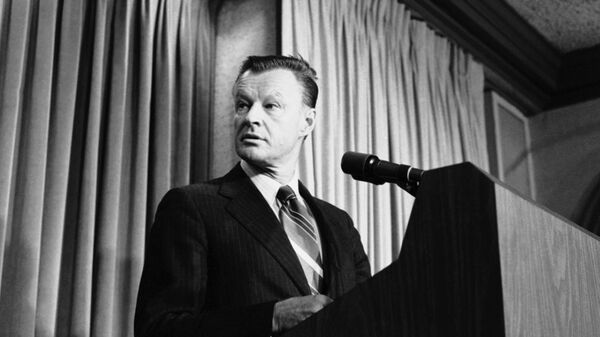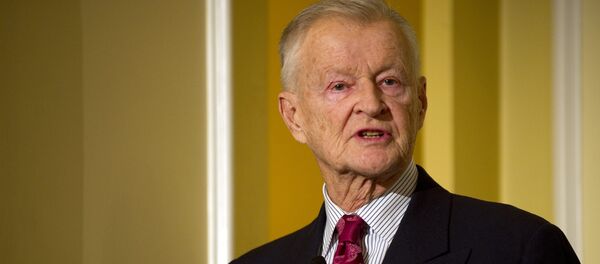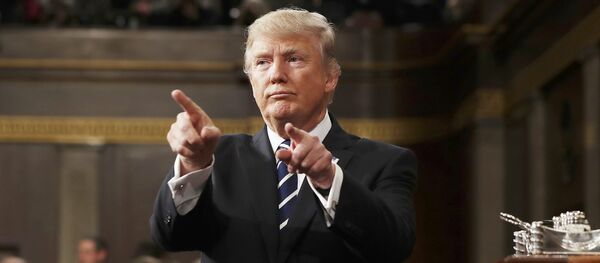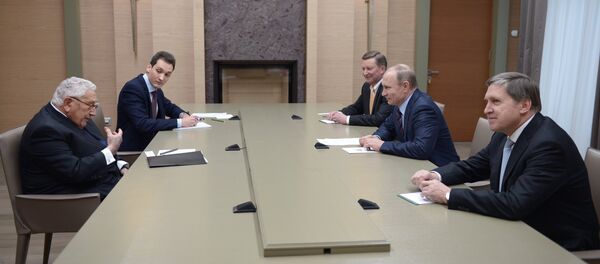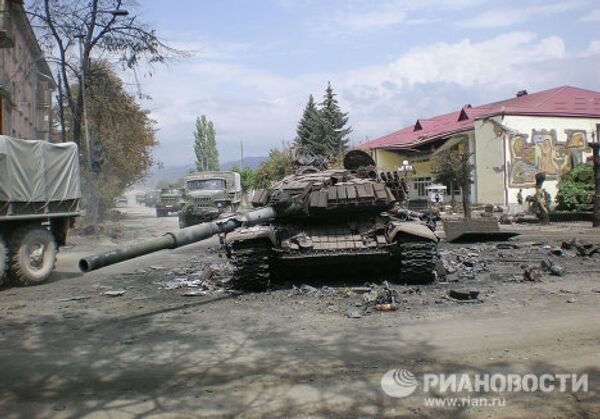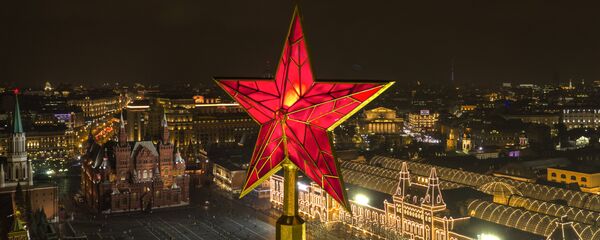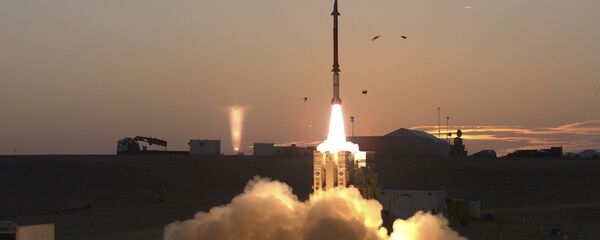"The plans he created for political operations were just as original, unique and deadly to the enemy as Suvorov's plan for the Italian campaign, the Schlieffen plan (which Helmuth von Moltke the Younger was unable to implement properly) or the plan for an offensive in the West developed in 1940 by Erich von Manstein in World War II."
In fact, Ishchenko wrote, Brzezinski "had played a similar role for the United States in the last quarter of the 20th century that Vladimir Putin had played for Russia in the first quarter century of the 21st."
Chosen as newly-elected President Jimmy Carter's national security advisor in January 1977, Brzezinski came into the role at a very difficult moment in American history.
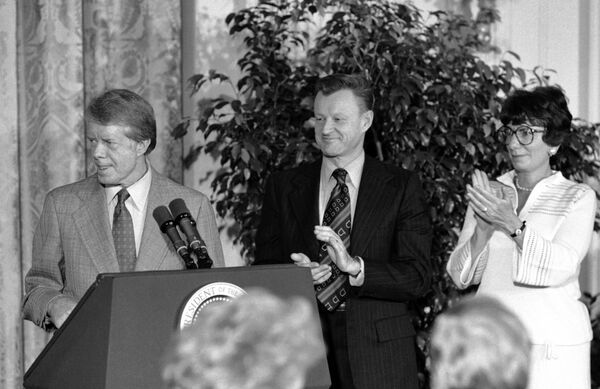
In the first half of the decade, the country had experienced a series of severe crises in both foreign and domestic policy, whose combined weight seriously undermined Washington's global stature and its opportunities for pursuing a proactive foreign policy.
A year later, as a result of the Watergate scandal, Nixon resigned. America's economic crisis was compounded by the largest political crisis in 20th century US history. Finally, a year after that, in 1975, North Vietnamese forces, together with the South Vietnamese National Liberation Front took Hanoi, bringing a shameful end to the US war in Vietnam.
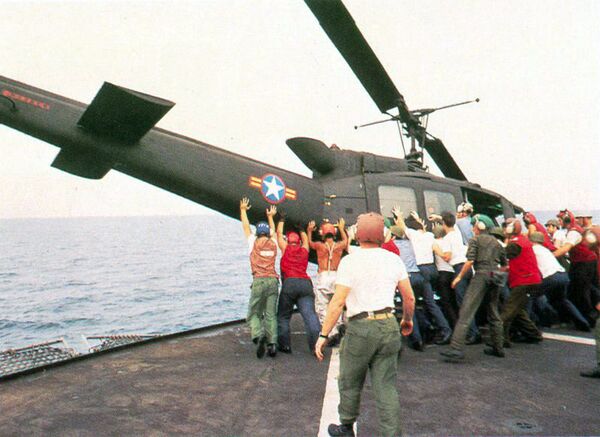
"This was the largest US military defeat in history, Ishchenko wrote. "The superpower, in spite of all its strength, had lost the war against a third world country, which did not possess even a tenth of the military power that the US had concentrated in Vietnam."
Meanwhile, the analyst added, the arrival of the Carter administration did not stop this series of foreign policy calamities. In January 1979, the Shah's regime in Iran, which until that point had been the US's closest ally in the Middle East, collapsed.
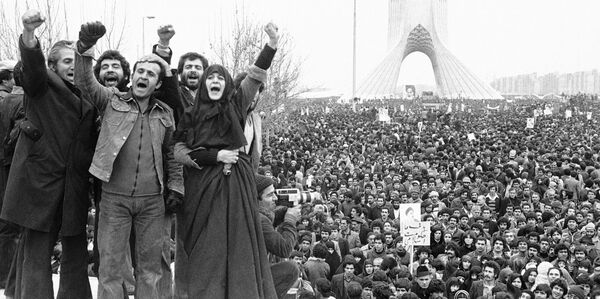
In the latter effort, Brzezinski succeeded.
"It is no coincidence that up until his death, he remembered with pride the operation he had organized to get the USSR involved in the War in Afghanistan. It was a classic scheme of presenting a choice between two evils. Moscow could ignore American activity in Afghanistan, receiving an abscess on its southern borders which would jeopardize the stability of the Central Asian republics of the USSR itself. Or it could send troops and get involved in a guerilla war, which the Afghans have gotten used to waging against foreign militaries."
"Factually, this was the same scheme that Brzezinski's successors had offered Russia in Ukraine." But the plan backfired. "In 2014, the Russian leadership was able to find a third way, and present an effective asymmetric [response]. As a result, for three years now, the Ukrainian crisis became not Russia's problem, but the West's."
"Against the backdrop of previous foreign policy victories by the USSR and its allies, the Afghan crisis seemed a trifle – another war of national liberation against the colonialists of an enslaved people, led by a Marxist party [the Afghan communists, who came to power in 1978] and oriented toward Moscow. By 1979, the Soviet Union had won over a dozen such conflicts with the US. Why would Afghanistan be any different?
Non-ideological, unemotional Brzezinski, looking to take all factors into account, understood why. The fragile nature of Afghan statehood, which united tribes from different ethnic groups (Pashtuns, Uzbeks, Tajiks, Hazara) and different religions (Shiites and Sunnis) had been held together thanks to a historically created internal political balance, which any foreign military presence would violate.
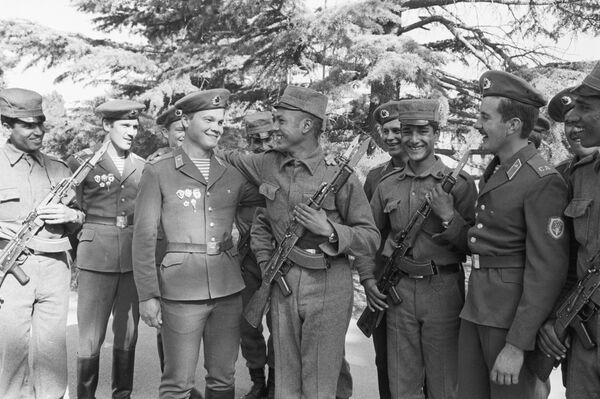
The entry of any foreign troops, Soviet or otherwise, would have resulted in a civil war and a guerilla movement directed against the occupiers and their local allies. This is a factor that the British faced before the Soviets, and the Americans (who had ceased to be guided by Brzezinski's wise advice) after them.
When the limited contingent of Soviet troops entered Afghanistan in December 1979, Brzezinski's main goal was reached. The Soviets got stuck in a conflict meant to endlessly consume their resources, while US spending to support and grow the resistance would be tiny – and basically shifted onto Saudi Arabia and Pakistan. Moreover Iran, hostile to the Americans found itself on Washington's side, supporting the Shia Hazaras' resistance to the atheistic pro-Soviet government in Kabul."
This is how Osama was portrayed by Western Media post-Soviet withdrawal from Afghanistan. @roy_rameshwar @gurmeetkanwal @Dhruv_CK pic.twitter.com/1UJikzsObx
— Narender Kumar (@narry13) 18 мая 2017 г.
Effectively, Ishchenko wrote, "the US tied the Soviets up in a secondary direction, and at someone else's expense. That was the real beauty and efficiency of the political strategy proposed by Brzezinski."
"Of course, Brzezinski would not be a great strategist if he applied but one template always and everywhere – if he never deviated from previously promoted concepts as they became obsolete," the observer added. "In 2009, he was the first within the American political elite to insist on a sharp turn toward alignment with Russia on the basis of equal, partnerly relations. At that time, the Obama administration was conquered by Clinton's demagogues – the globalists, who did not understand very well what they were doing, or how to count more two steps forward."

"They decided that the old man had lost his mind, and that the methods he applied in Afghanistan – forcing the enemy to pick between two bad choices, could be implemented even without its original author. They turned out to be wrong. The wise old man could see what they did not wish to see."
Brzezinski, Ishchenko noted, had seen how the 'Afghan strategy' failed in Georgia in 2008. "Russia responded swiftly, but not as expected. Moscow did not stay silent in response to aggression, but did not liquidate the bankrupt Saakashvili regime either, giving the West the dubious pleasure of fooling around with this 'great democrat', who spoils everything he touches."
"Brzezinski, the true great strategist that he was, understood that if the Russians had found the antidote destroying the scheme, it would find a second – and one that would be even more effective. For him, it was no secret that the use of one-size-fits-all solutions in politics is just as disastrous as it is in warfare.
But the longer America strained to break Russia, the weaker it became – and the stronger Russia became. This political paradox is typical for any empire which tries, at the twilight of its power, its resources stretched over a vast area of responsibility of long-corrupted vassals, to confront a stubborn and flexible opponent which cannot be physically destroyed. Russia was impossible to destroy – its nuclear shield guaranteed protection against America's 'humanitarian aggression'.
Brzezinski had proposed Trump's strategy long before Trump, before it was too late – when the US political elite had not yet been divided, and remained capable of speaking with one voice. Today, the US can no longer conclude a peace from a position of strength. They would be lucky to see the Syrian crisis play out as a draw. The remaining territories (including the EU) are being sacrificed, hoping to sort them out later, when circumstances improve.
The question is – will this 'later' ever come, for a country that is a decade behind on taking the necessary foreign policy steps. For a country whose president is constantly being distracted by fighting with domestic political opponents, who dream of removing him from power, and who are not shy about the means used for doing so – even expressing a willingness to risk a civil war in the United States."
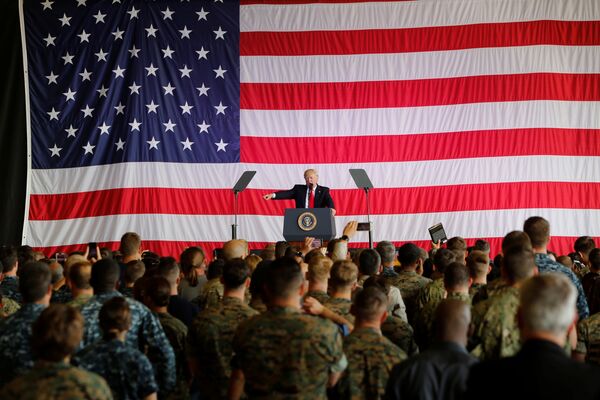
Brzezinski, Ishchenko emphasized, was a man who understood that in politics, nothing is permanent – that there are no hopeless situations, that the US and Russia would never be able to defeat one another by military means, but who are destined to constant political, strategic, and economic competition. Brzezinski understood that the victor should never rest on his laurels "- that after each victory (and all of them are temporary) it is necessary to immediately prepare a new operation against the old enemy."
Today, the analyst wrote, "together with Brzezinski, an era – the era of US hegemony, has passed away. He could see the beginning of the end for the global empire he helped to create. He managed to warn the US elite that the old templates no longer apply – that it was necessary to find new paths to victory. He was not heard."
As for Russia, the analyst noted that the country's "national interests have benefited endlessly from the fact that the US has not found another political strategist who could understand and appreciate the depth and flexibility of the strategic formulations created by the now deceased, and therefore safe, Brzezinski."
